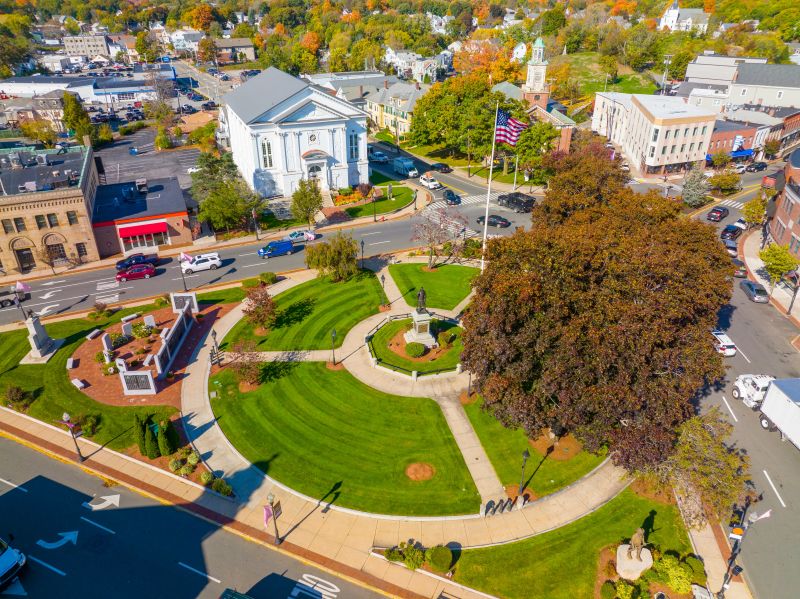
For so many people looking to live and work in this area, the question of “renting and apartment vs buying a home for sale in Boston” is a difficult one. Renting is gradually gaining in popularity for many reasons, and the fact is that many people in the market for housing will be forced to rent for budget reasons. However, homes for sale in Boston are still in very high demand, and this force will continue to drive the market for the foreseeable future.
Renting is gaining on ownership for the simple reason that real estate prices are going up nationwide, and that trend is particularly true in Boston. The real estate market has been in a steady rise since 2009, and this trend is all the more pronounced in the country’s largest markets. The Boston real estate market has led this nationwide trend, ranking in the top 5 most expensive real estate markets in the country despite being one of the smaller “big cities” in the US. As developers tussle for the limited real estate along the Charles River and the Waterfront, the people moving to the city are left with high prices and tough decisions on what neighborhoods to live in and whether or not ownership is for them.
The major factor affecting the balance between buying and renting is the pressure of supply and demand. Demand for Boston housing has steadily increased year over year as new residents have flocked to the area from other states. There are more people looking to live close to Boston than ever before, and this fundamentally affects prices of both homes for sale and well as Boston apartment rentals.
This increased demand culminated in Mayor Marty Walsh’s ‘Housing a Changing City’ plan in 2014, where the city planned to add 53,000 new housing units by 2030. Since this initiative was put in place, Boston has added 26,000 new units to it’s housing inventory, with 26,000 more units under review by the board. This new initiative has attracted investors from all over the world, and the new construction projects have had no problems finding interested shoppers to buy the units.
Even as all this new inventory has been added to the local real estate market, the steady influx of new residents has continued to drive the prices higher year over year, even as some have hinted towards a bubble. Only until recently has the trend showed any signs of slowing, and at this point the prices are so high, it is difficult for the average middle class family to be able to afford anything close the city.
Although conventional wisdom would seem to indicate that home ownership is always the best investment long term, the realities of the Boston real estate market make the decision a difficult one for the average buyer. The high cost of entry to the buyer’s market is a big obstacle for most buyers. Even first time buyers who qualify for an FHA loan will still have to save close to $25,000 to cover the down payment and closing costs to purchase a $500,000 home. If you plan to put 20% down for a conventional loan, you better have $100,000 liquid ready to go. This simply is just not an option for many people.
The American housing market famously hit its nadir in 2008, and Boston’s real estate market was no exception. A decade later, the market has bounced back strong and prices have recovered. Even when prices were at rock bottom and we had historically low interest rates, many aspiring buyers had difficulty securing loans due to the resulting credit crunch the followed the crash. It has been a long, slow climb out of this position, and the market has recovered and exceeded pre-crash prices, even with inflation factored into the equation. What’s more, the housing prices we see now appear to be more stable and realistic than those encountered during the real estate bubble of the early 2000s. There is less over-extension in the loan market, fewer junk bonds to cloud the issue, and a more financially savvy and realistic buyers.
As the market has stabilized over the last decade, all signs point towards an increase in interest rates for buyers in the upcoming years. As prices show no sign of decreasing locally here in Boston, this will undoubtedly put even more pressure for residents to rent vs. buy.
Still, those who can afford to buy will certainly be inclined to do so, as the long term equity established with homeownership will provide many long-term benefits over renting. Despite the high cost of homes and condos for sale in Boston many people see it as a viable investment to reach their long term goals, and most are still optimistic that they will make a good return on investment from purchasing a home in Boston.
The market is certainly more stable than it was 15 years ago, and nobody will argue that. This stability has brought with it challenges for the buyer, and many millennials entering the market are not very optimistic about their chances of owning a home before they turn 30. The average age of first time home buyers is much higher than it was 10 years ago as a result of the market correction, which is not necessarily a bad thing, but it has cast some doubt and skepticism for buyers as to whether owning a home is right for them.
The last 10 years has been a wild ride, but for the adventurous and business savvy, the real estate market remains to be one of the best long-term investments. Despite the fact that more and more people are getting priced out of the market, those that can afford to buy still will for this reason.

Demetrios Salpoglou
Published November 20, 2018
Demetrios has pulled together the largest apartment leasing team in the Greater Boston Area and is responsible for procuring more apartment rentals than anyone in New England – with over 130k people finding their housing through his services. Demetrios is an avid real estate developer, peak performance trainer, educator, guest lecturer and motivational speaker.










